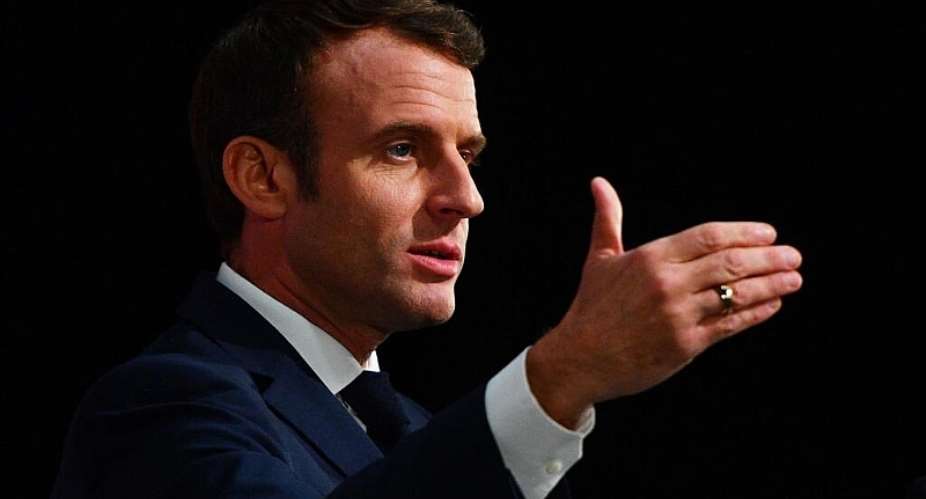French President Emmanuel Macron says he wants to see regional express trains, similar to the Paris RER system, linking suburbs and centre in ten metropolitan areas. The president did not propose a time scale for the development, nor explain how it might be financed.
President Macron said that as part of France's commitment to environmental improvement, he wants to see regional train networks put in place around ten major French cities.
"We have to decarbonise our daily trips," the French leader explained to followers on YouTube on Sunday.
A presidential spokesperson added that the hope is to offer a greater choice to those who make costly, frustrating and environmentally negative commutes in private cars to and from city centres.
"It's a super idea, for the environment, for the economy and for the quality of life," Macron insists, because it will reduce pollution, traffic jams and the waste of both time and money.
But the president did not offer any precise objectives. His team have explained that several major urban transport projects are already being worked on, either physically or at the planning stage.
The sphere of ecological planning is the responsibility of the Prime Minister, Elisabeth Borne.
Cautious welcome for initiative
While the presidential announcement has been broadly welcomed by ecologists and local representatives, critics have pointed to the fact that €3 billion, intended for the rail sector, was withdrawn by the government from transport legislation passed in early November.
Bruno Gazeau, the president of the National Federation of Transport Users (Fnaut) says he is very supportive of the plan, which comes as a bit of a surprise.
Gazeau says his organisation has repeatedly called on government to initiate just this sort of programme, to force the cities and their surrounding areas to work together.
"But the rail network is going to need a lot more money," he warns. "Let's wait until we see the details."
Some cities already identified
Lille, Strasbourg, Bordeaux, Lyon and Marseille are among the cities already earmarked for a major upgrade of their public transport infrastructure.
Mayors of other cities have reacted to the presidential initiative by proposing that their urban hubs deserve consideration.
Rennes in Brittany and the Alpine city of Grenoble have been among the most enthusiastic, Grégoiry Doucet, Mayor of Rennes, tweeting in English "Make the train great again!"
The Ile-de-France region which surrounds Paris already has an extensive suburban rail system, the Rapid Regional Express, or RER.
Regional president Valérie Pécresse says she's surprised by the presidential plan which will take ten years to put in place. She can't balance the books for next year and wants to increase the price of monthly tickets from €75 to €180.
A city official in Lille says they're stunned by Macron's announcement.
"The government could find only €400 million for the network branch of the national rail company, even though the equipment is falling asunder and needs €10 billion each year to bring it up to the mark," says Franck Dhersin, regional vice-president in charge of transport for northern France.
Financial difficulties
A government commission on the orientation of infrastructure spending between 2025 and 2032 is due to publish its report in mid-December.
François Durovray, who is a right-wing opposition member of that commission, warns that the financial implications are enormous.
"If you want rapid rail systems in ten cities, you're going to need more than €30 billion over the next five years," he says. "That's more than twice the amount planned."
The boss of the national rail company, Jean-Pierre Farandou, is even less optimistic, saying it will take €100 billion over 15 years if France is to double the number of train passengers.
President Macron, who wants to mark this second mandate with a series of environmental successes, ends his YouTube presentation by promising that his ministers will turn these outline decisions into real actions.





 Elisu By-election: "If you call yourself a man, boo Chairman Wontumi again" — Bo...
Elisu By-election: "If you call yourself a man, boo Chairman Wontumi again" — Bo...
 Fuel tanker driver escapes with his life after tanker goes up in flames near Suh...
Fuel tanker driver escapes with his life after tanker goes up in flames near Suh...
 Uniform change: ‘Blue and white are brighter colours’ — Kwasi Kwarteng explains ...
Uniform change: ‘Blue and white are brighter colours’ — Kwasi Kwarteng explains ...
 MoE not changing all public basic school uniforms but only newly built ones — Kw...
MoE not changing all public basic school uniforms but only newly built ones — Kw...
 We’re only painting new public basic schools blue and white – Dr. Adutwum clarif...
We’re only painting new public basic schools blue and white – Dr. Adutwum clarif...
 Bawumia has lost confidence in his own govt’s economic credentials – Beatrice An...
Bawumia has lost confidence in his own govt’s economic credentials – Beatrice An...
 I fought WW2 at age 16 – WO1 Hammond shares At Memoir Launch
I fought WW2 at age 16 – WO1 Hammond shares At Memoir Launch
 GRA-SML deal: Regardless of what benefits have been accrued, the contract was aw...
GRA-SML deal: Regardless of what benefits have been accrued, the contract was aw...
 April 26: Cedi sells at GHS13.75 to $1, GHS13.18 on BoG interbank
April 26: Cedi sells at GHS13.75 to $1, GHS13.18 on BoG interbank
 Champion, promote the interest of women if you become Vice President – Prof. Gya...
Champion, promote the interest of women if you become Vice President – Prof. Gya...
